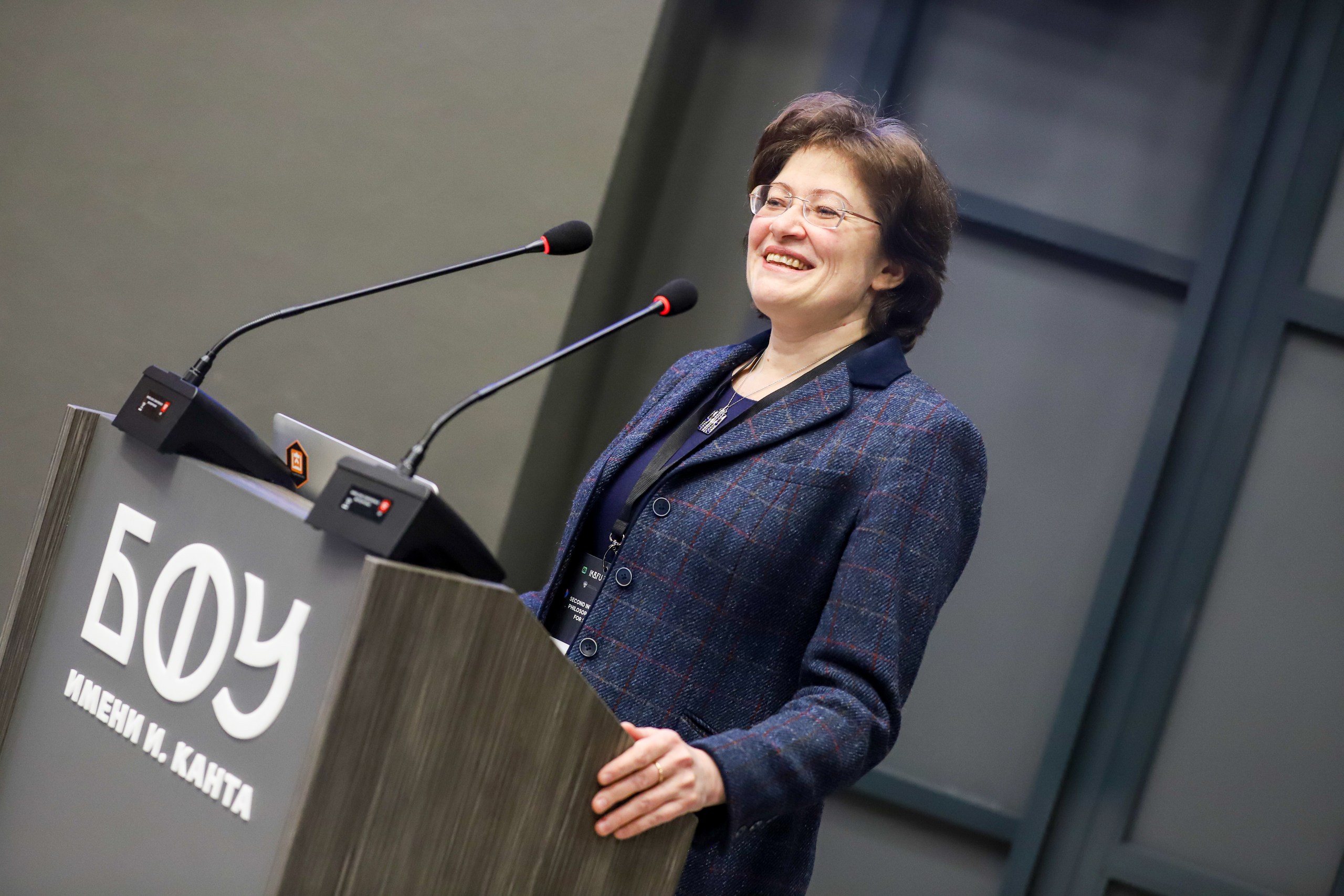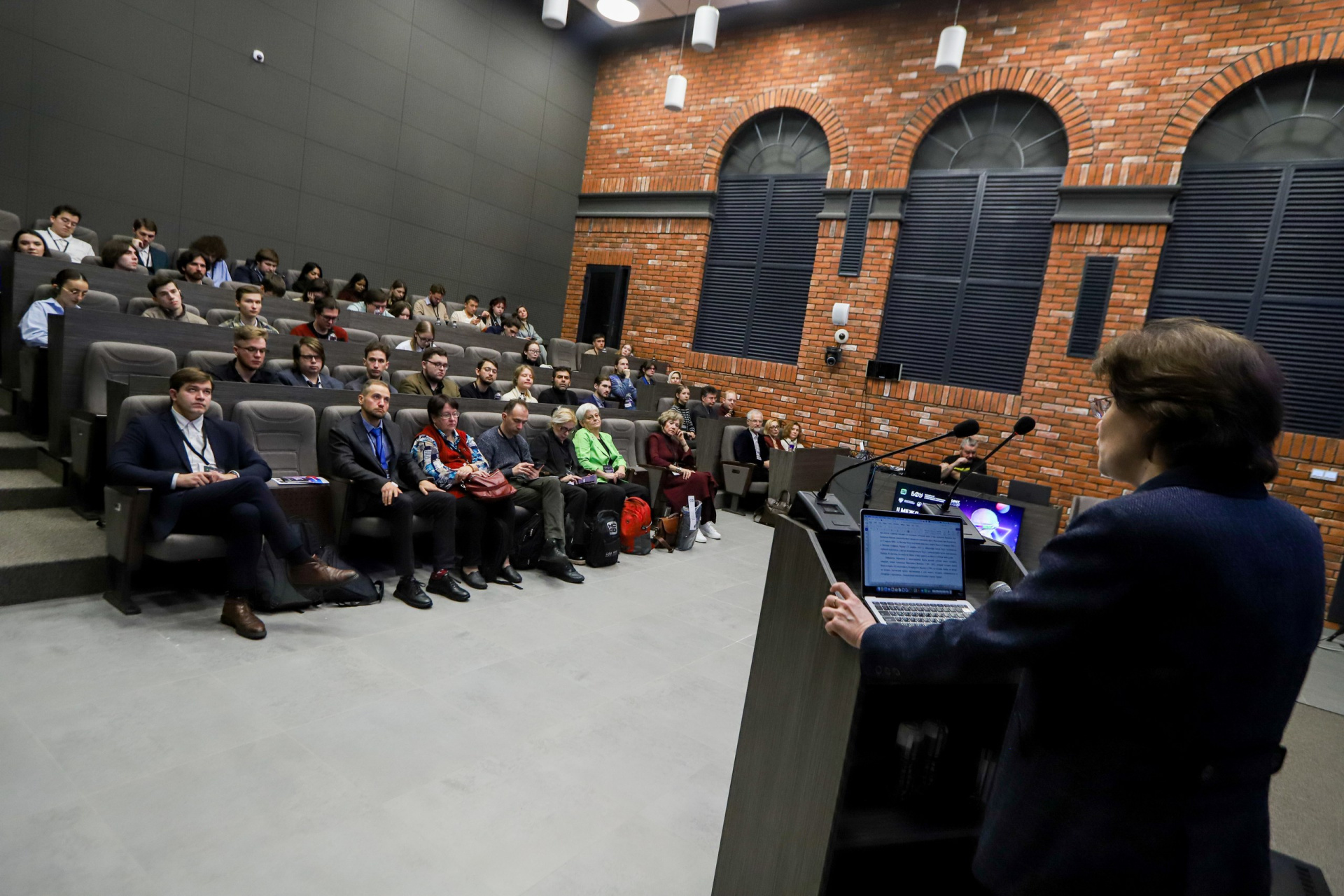
The International Philosophy Olympiad for Students began with a lecture delivered by Doctor of Philosophy and Professor Nina Dmitrieva. In her talk, titled “What is Enlightenment? Kant’s Answer Interpreted by Russian Thinkers,” Dmitrieva explored how Immanuel Kant’s concept of enlightenment was received and reinterpreted within the Russian cultural tradition. She emphasized the enduring relevance of enlightenment principles in the contemporary age.
| It was in the age of Enlightenment that the principles of the human mind were revealed, without cultivating them, normal life and the future of modern society and each individual are impossible. These principles cannot be replaced or simulated by such fashionable things as artificial intelligence, nor can they be ignored in an attempt to return humanity to pre-Kantian — read, pre-Enlightenment — times. |
The question of education’s role in human history was raised long before Kant. But since Immanuel Kant joined the debate on what should be understood as enlightenment exactly 240 years ago this discussion has acquired a new perspective and insight.
| In Russian culture, Kant’s project of enlightenment received a specific interpretation; Immanuel Kant’s philosophy became an unprecedented reference point in Russian culture quite early on. |

For Kant, enlightenment was defined as the courage and ability to think independently—a task for humanity as a whole. This intellectual independence is supported by the public use of reason, manifesting in freedom of thought, speech, conscience, and religion. Kant emphasized that this freedom is universal, rooted in the shared capacity of human reason.
Prominent Russian intellectuals, including Alexander Herzen, Alexander Radishchev, Nikolay Karamzin, and Leo Tolstoy, drew inspiration from Kant’s ideas, weaving them into their works and philosophies.
| Leo Tolstoy’s entire life essentially corresponds to the trajectory of the Kantian enlightenment endeavour. |
In Letters of a Russian Traveler, Nikolay Karamzin introduces Kant to his readers as a profound and subtle thinker, describing him as a monumental figure whose influence will endure in the philosophical world. Inspired by Kant, Karamzin reflects on the concept of eternal peace, asserting that enlightenment is humanity’s ultimate remedy for suffering. Similarly, Alexander Herzen engages with Kant’s notion of “public expertise,” which emphasizes the importance of scholars having the freedom to discuss and critique societal issues openly. Herzen highlights that fostering an environment for free discussion and public criticism is essential for societal progress, with such discourse being protected as a societal obligation. For Kant, this capacity for public reasoning is a key marker of the “maturity” of reason, achieved through the pursuit of knowledge and the ability to critically examine one’s own thoughts. In his play The Fruits of Enlightenment, Leo Tolstoy satirizes those ensnared by prejudice and superstition, particularly the then-popular pseudoscience of spiritualism. Tolstoy expresses astonishment that even educated individuals fall prey to such irrational beliefs, abandoning intellectual rigor in favor of pseudoscientific distractions. He condemns this as a form of “active idleness,” where lives are squandered chasing empty pursuits. With sharp irony, Tolstoy forces readers to confront the uncomfortable truth that the 19th century, despite its advancements, failed to embody the ideals of enlightenment in Russia.
| Thus, for Russian culture, Kant’s project of enlightenment is an attempt to find the true path of the human spirit through knowledge, freedom of discussion and criticism. The path of reasonable and morally free action to transform social life in order to achieve civil well-being consistent with human dignity. |
User profile for student
User profile for student
I give consent to the processing of the personal data provided, with Personal Data Processing Policy acquainted
Confirm consent